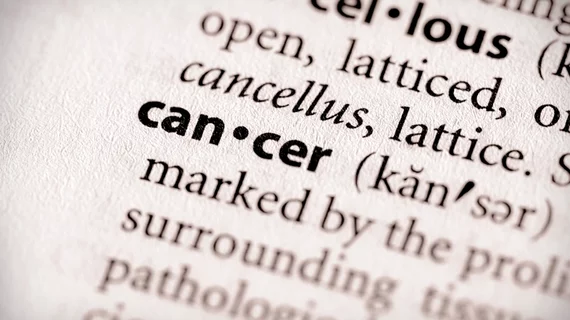ACR scores $341K grant to help close the loop on cancer diagnosis
The American College of Radiology has netted a $341,000 grant from the prestigious Gordon and Betty Moore Foundation to develop a measure to ensure that cancer patients aren’t slipping through the cracks.
Oftentimes, radiologists detect unexpected abnormalities in imaging studies done for other purposes. However, health systems frequently lack the processes to make sure that patients and providers follow through on the essential subsequent testing, experts note.
ACR Metrics Committee Chair David Seidenwurm, MD, will work to develop a new quality measure to determine whether clinicians are following best practices to ensure that subsequent screenings are conducted, following those initial incidental findings. Current compliance for such follow-up ranges from 29% to 77%, the ACR estimated.
“This presents an opportunity for improving patient outcomes through early detection of cancer or other treatable conditions and ensuing treatment as appropriate,” the college noted in a news item shared Friday, Dec. 6.
Altogether, the foundation is awarding about $3.7 million in grants to nine projects as part of its Diagnostic Excellence Initiative. Their overarching goal is to reduce harm from erroneous or delayed diagnoses, with a targeted focus on acute vascular events, infections and cancer.
In the third category, other initiatives will develop everything from e-measures to reduce preventable delays in cancer diagnosis to piloting a measurement tool for the diagnosis of lung tumors. Seidenwurm’s “Closing the Loop” project will aim to boost the number of patients receiving follow-up imaging studies and earlier cancer detection by developing systematic tracking and care coordination methods, according to the ACR post.
“The ideas that we’ve chosen to fund through our request for ideas are varied in their approaches, but they all address the fundamental challenge of how to measure diagnostic performance,” Karen Cosby, program officer for the Diagnostic Excellence Initiative, said in an announcement. “We look forward to seeing the results of these approaches in the future.”

